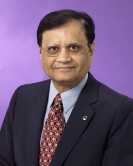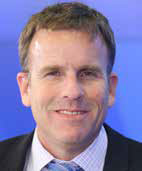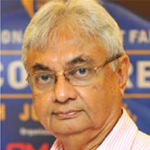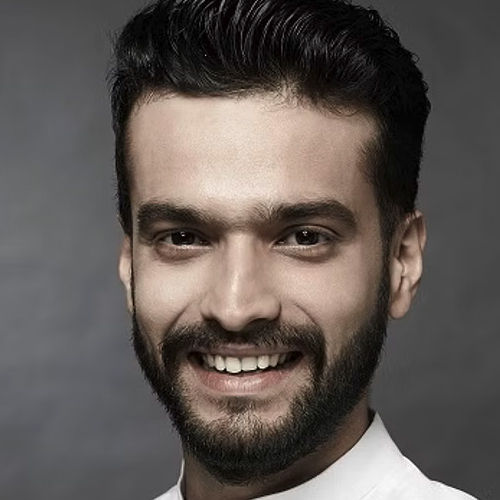
Yash P. Kotak
Director
Bombay Hemp Company
One of the directors of Bombay Hemp Company, Yash P. Kotak, speaks to Meher Castelino about hemp and its future.
One of the directors of Bombay Hemp Company, Yash P. Kotak, speaks to Meher Castelino about hemp and its future.
Fibre2Fashion: How did the Bombay Hemp Company come into being?
Yash P. Kotak:
F2F: Who are the brains behind this brand?
YPK:
We were all early-20s graduates from HR College, Mumbai. The BOHECO team comprises Avnish Pandya, Chirag Tekchandaney, Delzaad Deolaliwala, Jahan Peston Jamas, Sanvar Oberoi, Sumit Shah and Yash P Kotak.
F2F: One has not heard of your company in the media. Why do you keep such a low key profile?
YPK:
BOHECO has been covered by newspapers and portals, but we haven’t invested a penny in advertising. The reason is that BOHECO is an R&D-driven company and most of our resources are invested in the same. Our own website and social media accounts do most of the promotion. However, in the near future we plan to carry out a few campaigns to promote our products. With time, BOHECO will certainly be omnipresent across more mediums.
F2F: What is your ultimate aim regarding hemp?
YPK:
When one hears that "India employs 60-65 per cent of its workforce in agriculture but contributes to only 13-16 per cent to the GDP" it makes one believe that there is something wrong in the way in which the country's backbone is dealt with. When most of your peers get into the "tech" space, there is an exigent need to fill gaps created in the agro space. Our aim with hemp is simple: we want to introduce a new tool for development. A tool with over 25,000 proven uses, one that grows in 90-100 days up to 12-15 feet, a tool that is farmer-friendly and has the potential to generate an economic value which is unmatched. Hemp has been used in India since times immemorial, but is now only being used for subsistence. Why not continue growing the crop to improve the economic status of farmer and artisan communities? We wish to adopt a new model of agriculture that has been inspired from the tech space. That would be "open source agriculture" where we provide the seeds to the farmers to grow, empower them with key skills to convert it into an end-product, and buy back all their produce to supply it to the ever-growing market. Hemp is a self-sustainable crop, which further reduces the dependency of farmers for food, clothing and shelter.
F2F: What are the advantages of hemp farming vis-a-vis other products?
YPK:
Hemp has numerous advantages over other products, but particularly on the fibre front we would use cotton as a benchmark and compare: 1 Cotton needs more water, and twice as much land to equal the productivity of hemp 2 Hemp has the lowest ecological footprint 3 Hemp needs 2,123 litres of water per kilo of usable fibre, whereas 9,758 litres of water is needed to produce a kg of cotton 4 Hemp fibre is four times stronger than cotton 5 Hemp doesn't require pesticide or herbicide, whereas cotton requires both 6 Growing cotton leaves a scorched earth and polluted water due to the harsh requirements of its production 7 Average fibre production per acre, in pounds: cotton - 121-445 lbs.; organic cotton - 80-102 lbs.; flax - 323-465 lbs.; hemp - 485-809 lbs.
F2F: How do you plan to promote hemp on the fashion front?
YPK:
The idea is to educate the masses about hemp and its benefits. Instead of reaching out to every fashion designer, we are approaching fashion colleges/institutes to talk about our fabric collection. We are reaching out to the future of the industry, so that they have the touch and feel of the product now. Once BOHECO's base is set, it will be easier for them to work with our fabric. Instead of disrupting the routine of existing designers, why not plant the idea in the minds of talented students now? Also, there are very few designers working with hemp. The idea is to give a niche opportunity to most in the business to come up with something as unique as using a unique fabric. In the cluttered space, everyone is looking for a new possibility to venture into, and we provide them with the platform to do so.
F2F: Is it difficult to get the raw fibre?
YPK:
Yes, it is tough to get hemp fibre, but not nettle fibre. India has a lot of mass hemp cultivated, but all of that is growing in the wild because of which it’s not standardised the way rice or wheat is. Our primary focus is on the R&D of the crop wherein we are working towards standardising it. Since the entire process depends on science and nature, it will take its due course; but we are closer to the reality than ever before. In the near future, it will be much easier to work with hemp fibre.
F2F: Where is the plant grown in India?
YPK:
Hemp originated in Central Asia in the Himalayan belt, because of which it is found in abundance in most parts of the country. It's pre-dominantly grown in the North - mainly in parts of Punjab, Uttarakhand, Jammu and Kashmir, and Himachal Pradesh.
F2F: How is it processed into yarn and then clothes?
YPK:
In India, the primary unit we work with is a handloom-based unit where fabrics are constructed using ethnic and primitive techniques. Since the space of hemp textiles requires a breakthrough in R&D, this limits us to working with such techniques. All the processes involve no machinery, and are done primarily using bare hands. This is going to change with time once we involve more modernised techniques. The following diagram shows the processes our fibre goes through:
F2F: What are the benefits of hemp clothing?
YPK:
F2F: What has been the turnover of the company since it started?
YPK:
Sales turnover has crossed `20 lakh since inception (in January 2013). However, commercial sale of products began in June 2013.
F2F: What are the expansion plans in the different segments of hemp products?
YPK:
The next three years are vital for each of the businesses we are present in to take shape the way we have planned. We plan to increase scale with respect to our hemp foods distribution model, and be more visible by taking up retail and wholesale distribution. Our garment line of "The Hemp Couture" (THC) will expand product base to accessories such as belts, footwear and bags in addition to T-shirts, shirts and trousers. We are also actively seeking creative uses of hemp material such as hemp filaments in 3D printing and its use in nano super-capacitors.
F2F: How much will fabrics and garments comprise in the total product list?
YPK:
About 70 per cent of our product inventory comprises textile-related products.
F2F: What would be the price of a shirt, and how affordable will it be for the ordinary person?
YPK:
The retail unit price of a shirt is `2,487, made from 100 per cent hemp linen fabric. When you compare it with the conventional linen fabric of most top brands, those are easily priced at northwards of `3,000. Ours is a much better deal as we offer a better grade of linen at a cheaper price. Yes, such a price cannot be catered to the mass audience, but with time once we start manufacturing it in India on a large scale it will certainly be an affordable option.
F2F: What are the future plans for the company?
YPK:
We work with an aim to be raw material suppliers of industrial hemp to industry giants that will make this crop a daily household affair. In the future, we steer towards working with our retail-based model online. In the present, we wish to cultivate large amounts of hemp fibre and seed produce them, to cater to the demands of construction material and textile manufacturers along with the view to be an end-to-end packaged hemp foods company selling to consumers.
F2F: What is the profitability margin for hemp so far?
YPK:
We don't work with high margins at the moment. They are minimal since our primary aim is to 'Educate' and make sure that hemp enters the daily lives of people through basic necessities of food, clothing and shelter. We also have an MSP for the 25 families of farmers and artisans we work with, since the idea was to give a bonus stream of revenue to farmers. While we are in pursuit of creating a mega hemp industry, in the interim we have decided to work on marginal profits because we want to test the waters with our products. When we manufacture at a bigger scale, we shall work towards higher profitability.
F2F: Are you exporting or importing the raw fibre?
YPK:
Since standardised raw fibre is available only in research quantities, we neither export any fibre nor do we import. We don't export because of lack of raw material, and we do not import since we believe working with indigenous fibre is the best way ahead. However, we import power loom yarns and fabrics from Romania, China and Taiwan since those are unavailable in India at the moment.
F2F: Are there any plans to export the fabrics?
YPK:
Certainly, we have already exported a significant chunk of our handloom fabric to Germany and the United States. We are also in pursuit of exporting our clothing brand overseas.
Anurag Batra
Fanny Vermandel
Arun Sirdeshmukh
Aseem Prakash
Bill D’Arienzo
Rahul Mehta
Pradip Mehta
Gabi Seligsohn
Rahul Mehta
Abhay Gupta






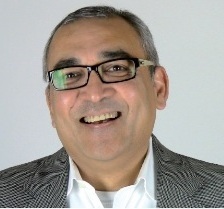
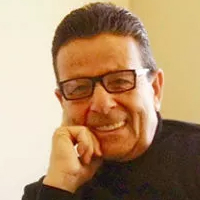
_8.JPG)
